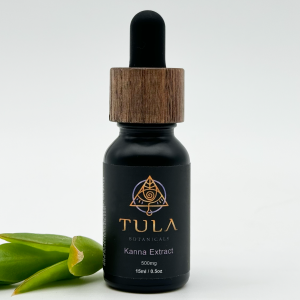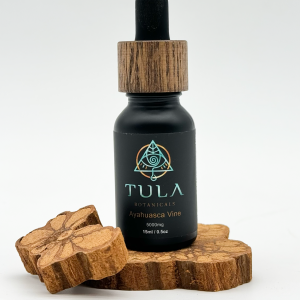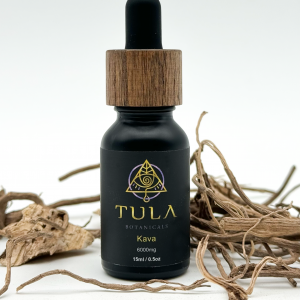Bobinsana (Calliandra angustifolia): Description, Historical Use, Current Research, and Effects
Scientific Overview:
- Scientific Name: Calliandra angustifolia (also known as Calliandra tweedii or Calliandra surinamensis)
- Common Names: Bobinsana, Bobinsana tree, or the “Heart Medicine” of the Amazon
- Family: Fabaceae
- Genus: Calliandra
- Species: angustifolia
Bobinsana is a shrub or small tree native to the Amazon rainforest, primarily found in regions of Peru, Colombia, and Brazil. This plant is known for its striking, vibrant pink or red flower clusters and its traditional use in the spiritual and medicinal practices of indigenous Amazonian tribes. It is also highly regarded for its potential therapeutic effects on emotional and physical health.
Historical Use:
Bobinsana has a long history of use among indigenous peoples of the Amazon, where it is considered a sacred plant. It has been used primarily by tribes in Peru, Colombia, and Brazil for its therapeutic, spiritual, and emotional benefits.
Spiritual and Shamanic Use:
- Sacred plant: Bobinsana is revered as a sacred plant in traditional Amazonian medicine, especially by indigenous groups such as the Shipibo, Ashaninka, and other tribes. It is often used in shamanic rituals to facilitate spiritual growth, healing, and connection with nature.
- Heart medicine: Bobinsana is often referred to as the “heart medicine” of the Amazon, symbolizing its role in opening the heart and facilitating emotional healing. It is believed to help individuals connect more deeply with their inner emotions and express feelings that may be suppressed or repressed.
- Spiritual journeying: Shamans use bobinsana during ceremonial rituals, particularly in conjunction with plant-based medicines like ayahuasca, to enhance the experience of spiritual journeys and facilitate emotional processing.
Traditional Medicinal Use:
The indigenous use of bobinsana extends to various physical and emotional health conditions. It is utilized as both a physical tonic and an emotional healer, with the following uses:
- Emotional and psychological healing: Bobinsana is commonly used to treat emotional blockages, trauma, and grief. It is said to open the heart, enhance compassion, and help individuals release stored emotions, fostering emotional well-being and spiritual clarity.
- Memory and cognitive function: In some traditions, bobinsana is used to improve memory and mental clarity, as it is believed to aid in cognitive function, especially when individuals are dealing with emotional trauma or mental fog.
- Physical health: It is also used in some cases to treat physical ailments, including inflammation, pain, and other conditions related to the nervous system. It is considered an anti-inflammatory and a natural remedy for various physical discomforts.
Preparation and Consumption:
Traditionally, bobinsana is prepared as a decoction or infusion using the plant’s bark, leaves, or root. These preparations are consumed either as a tea or as a tonic. In shamanic ceremonies, bobinsana may be used as part of a ritual that involves chanting, music, or the consumption of other sacred plants to enhance its emotional and spiritual effects.
Current Research on Bobinsana:
Despite its long-standing use in indigenous cultures, bobinsana has not been extensively studied in Western scientific literature. Much of the current research into bobinsana is based on ethnobotanical studies, traditional use reports, and anecdotal evidence from those who have used the plant in ceremonial settings or as a natural remedy.
However, researchers are beginning to explore its potential in the following areas:
- Phytochemical Composition: Bobinsana contains a variety of compounds that are believed to contribute to its medicinal properties. Some studies suggest that it contains:
- Flavonoids: These compounds are known for their antioxidant and anti-inflammatory properties.
- Tannins: Tannins are a class of polyphenolic compounds that have antimicrobial, anti-inflammatory, and anti-oxidative effects.
- Alkaloids: Alkaloids are naturally occurring compounds that can have a range of physiological effects, including pain relief and calming effects.
- Saponins: Saponins have been linked to anti-inflammatory and immune-boosting properties.
While these compounds have been identified, more research is needed to fully understand their individual roles and how they work synergistically within the plant to create its healing effects.
- Emotional and Psychological Healing: There is growing interest in how plants like bobinsana can be used for emotional and psychological healing. Some researchers are exploring the potential of bobinsana as part of a broader study on plant medicines that open the heart and improve emotional well-being. The plant’s reputed ability to help individuals process trauma, grief, and emotional distress is an area of interest for psychologists and holistic practitioners who focus on the mind-body connection.
- Potential Cognitive Benefits: Early reports suggest that bobinsana might have neuroprotective and memory-enhancing effects. Some people use it for cognitive clarity, particularly in conditions where emotional trauma or stress has impaired mental functioning. Research on its cognitive effects is still in its infancy, and further studies are needed to validate these claims.
Effects of Bobinsana:
The primary effects of bobinsana are centered on its ability to facilitate emotional healing and enhance cognitive function. Its use can be both deeply spiritual and physically calming. The plant’s effects are subtle, and they vary from person to person, depending on the context in which it is used and the individual’s emotional and psychological state.
1. Emotional Healing and Heart Opening:
- Emotional release and healing: Bobinsana is often described as a gentle yet powerful tool for releasing blocked or repressed emotions. It is believed to work on the heart chakra, helping individuals process emotional pain, grief, and trauma. Many users report a sense of emotional release and a deepened capacity for compassion, empathy, and self-love.
- Spiritual growth and insight: In shamanic contexts, bobinsana is used to facilitate spiritual growth and insight. People often experience greater clarity about their emotional or life issues, allowing for transformation and healing. The plant’s ability to open the heart chakra is central to these experiences.
2. Cognitive Clarity and Memory Enhancement:
- Some users report improved mental clarity, focus, and memory when using bobinsana. This effect is particularly noted in individuals who have experienced emotional distress or trauma, suggesting that the plant may help clear mental fog and enhance cognitive function through emotional healing.
3. Relaxation and Stress Relief:
- Calming effects: Bobinsana has a calming effect on the nervous system, which can help reduce feelings of anxiety, stress, and nervous tension. It is often used to promote relaxation and a sense of well-being without causing sedation or drowsiness.
- Physical relaxation: The plant is thought to promote a general sense of relaxation, including muscle relaxation, making it beneficial for people who experience tension or tightness in the body as a result of stress.
4. Mild Sedative and Antispasmodic Effects:
- While not a strong sedative, bobinsana may have mild calming and relaxing effects on the body and mind. This makes it useful for people with sleep disturbances related to anxiety or emotional distress.
5. Potential Side Effects:
- Bobinsana is generally considered safe when used in moderate amounts, but as with any plant medicine, there may be potential side effects for sensitive individuals. Some users report mild nausea, dizziness, or headaches when consuming the plant, particularly if it is consumed in excess.
- Due to its emotional and spiritual potency, bobinsana may not be suitable for everyone, particularly individuals who are not mentally or emotionally prepared for deep emotional work. It is recommended to use bobinsana under the guidance of an experienced practitioner, especially in ceremonial or ritual contexts.
Conclusion:
Bobinsana (Calliandra angustifolia) is a powerful and sacred plant medicine of the Amazon, known for its spiritual, emotional, and cognitive effects. Its long history of use in shamanic practices, particularly among indigenous tribes in the Amazon, has made it a key element in the healing traditions of the region. Revered as a “heart medicine,” bobinsana is believed to facilitate emotional release, trauma healing, and spiritual growth, while also offering mild cognitive and physical benefits.
While current research on bobinsana is limited, its traditional uses and the potential benefits based on its phytochemical composition suggest that it may be a valuable tool in holistic medicine for emotional healing and mental clarity. However, as with any plant medicine, caution and respect for its potency are necessary, and it is recommended that bobinsana be used under the guidance of experienced practitioners, particularly in ceremonial settings.



